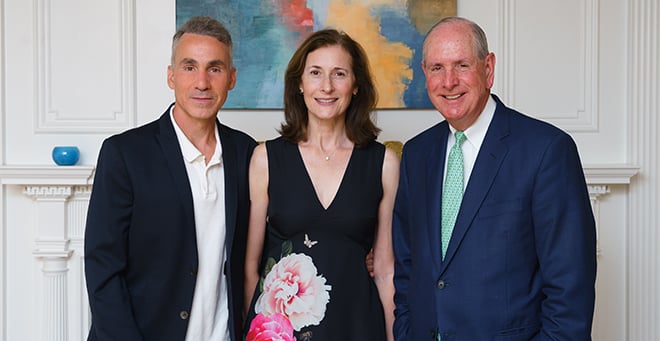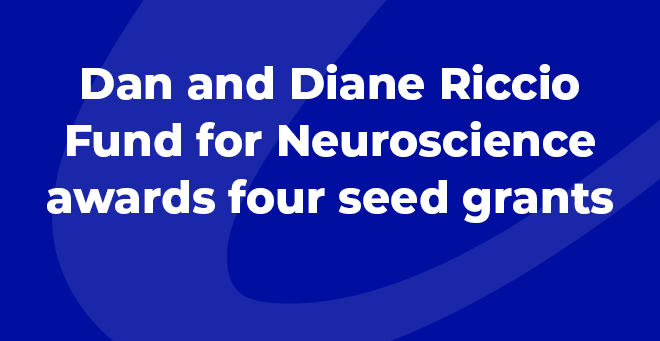
Dan and Diane Riccio with Chancellor Michael F. Collins
Two teams of UMass Chan Medical School scientists received awards of $50,000 each to support ground-breaking and interdisciplinary research in the neurosciences.
The awards are possible thanks to the Dan and Diane Riccio Fund for Neuroscience, which was established in 2017 with a $1 million donation from the Riccio family. In 2022, the Riccio family donated an additional $15 million to UMass Chan, with $5 million of that sum given to expand and endow the Dan and Diane Riccio Fund for Neuroscience.
“The Dan and Diane Riccio Fund for Neuroscience supports outstanding interdisciplinary teams to tackle innovative projects, achieve breakthroughs in basic neuroscience knowledge and accelerate development of cutting-edge therapies,” said David R. Weaver, PhD, professor of neurobiology and director of the NeuroNexus Institute. “We expect these funds can be leveraged to pursue grant funding from the NIH and other agencies in the future, further increasing the impact of these awards.”
One award was presented to Darren Lee, PhD, associate professor of ophthalmology & visual sciences; Claudio Punzo, PhD, associate professor of ophthalmology & visual sciences and neurobiology; and Ann Marshak-Rothstein, PhD, professor of medicine and microbiology for their project, “Fas therapy for the treatment of autoimmune uveitis.”
Uveitis, an inflammation inside the eye, is the third leading cause of blindness in the United States. The goal of the project is to test a novel strategy to provide more effective and long-lasting therapy option for uveitis patients.
The other award was presented to Michael Lodato, PhD, assistant professor of molecular, cell & cancer biology; and Ryan Logan, PhD, professor of psychiatry and neurobiology, for their project, “DNA damage and somatic mutations associated with opioid use disorder in human brain.”
The project’s main goals are to study the impact of chronic opioid use on DNA damage and repair in the human brain and to explore the potential impact of opioids and DNA damage on brain cell function and physiology.


